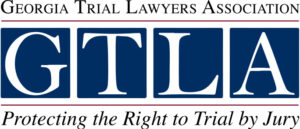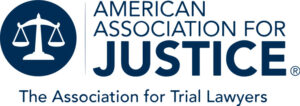Menu
Understanding Dehydration in Nursing Homes

Seeking Justice for Victims of Dehydration in Conyers Nursing Homes
Immediate Assistance Available: (678) 831-8875
Dehydration among the elderly is a fundamental problem in nursing homes. It’s not just about thirst; it’s a significant issue that can lead to dire consequences for residents of long-term care facilities. The skilled nursing home lawyers at Dan Chapman & Associates represent victims and their families when negligent or abusive practices at Conyers nursing homes lead to injuries or death. We hold the right people responsible.
Understanding Dehydration in Nursing Homes
Conyers nursing homes and other long-term care facilities are legally responsible for the safety and wellbeing of their residents. This includes ensuring all residents are accurately hydrated. When a nursing home facility chooses profits over the safety of its residents it leads to issues such as understaffing, poor management, and disorganization. When this happens, it’s the residents who suffer. One consequence of these issues is that nursing home residents don’t receive enough fluids to stay adequately hydrated.
Symptoms of Dehydration
Recognizing the signs of dehydration is important. Frequent surprise visits to a nursing home to see your loved one and check for signs of neglect and abuse can help protect them from issues such as dehydration. Below are some common symptoms to look out for that are associated with dehydration.
- Dry mouth
- Dark urine
- Confusion
- Dizziness
- Chronic thirst
- Sunken eyes
- Fainting
- Dry skin
- Low blood pressure
- Inability to urinate
- Urinary tract infections
- Pressure injuries
- Lethargy
- Stomach cramps
Unfortunately, sometimes elderly, or disabled nursing home residents are unable to express their needs to family members or nursing home staff. Many are unable to swallow or speak while others suffer from Alzheimer’s Disease, Dementia, or other debilitating diseases. It is the nursing home facility’s responsibility to ensure all residents are properly cared for, including their diet and hydration needs.
What is the Effect of Dehydration?
Dehydration isn’t just uncomfortable; it can lead to severe health complications such as urinary tract infections, kidney stones, and even life-threatening conditions like organ failure and death. The consequences of dehydration can be even more severe for elderly people because they often suffer from chronic diseases or issues such as diabetes, heart issues, or cancer.
The body also naturally loses water as we age so elderly people must increase their intake of water to stay hydrated. Some drugs can also cause dehydration. Water is essential to our health and when a body isn’t adequately hydrated, it begins to shut down.
Examples of the effects of dehydration include:
- Poor memory
- Poor motor skills
- Poor mood, depression
- Kidney failure
- Hypothermia
- Heart issues
- Low blood pressure
- Hypovolemic shock
What Should Nursing Homes Be Doing to Prevent Dehydration?
Dehydration is avoidable if doctors, nurses, and other nursing home staff implement and follow proper protocols. If facilities fail to meet the proper standard of care, it is considered neglect. Below are some examples of steps that can and should be implemented to protect residents from becoming dehydrated.
- Implement Resident Assessment Protocol (RAP)
- Implement the Minimum Data Set (MDS)
- Ongoing staff training.
- Monitor each resident’s fluid intake.
- Ensure residents always have water or other fluids within their reach.
- Encourage residents to drink water and/or Gatorade or other electrolyte-replacement beverages.
- Monitor residents’ urination frequency and color.
- Offer foods high in water like fresh fruits and vegetables.
Nursing homes and long-term care facilities have a legal and ethical responsibility to provide adequate care, including hydration. When they fail to meet this duty, they must be held accountable for their negligence.
Dehydration often results from neglectful practices within nursing homes, such as ignoring residents’ requests for water, withholding fluids as a form of punishment, or failing to assist residents with drinking. Dehydration is not just a medical issue; it’s a form of elder abuse and neglect. Our legal team is here to advocate for victims and hold negligent facilities accountable for their actions.
Contact a Skilled Conyers Nursing Home Abuse Attorney
If you suspect your loved one is suffering from dehydration due to negligence or abuse in a Conyers nursing home, you have the right to seek justice on their behalf. Don’t wait until it’s too late. Contact Dan Chapman & Associates for a free consultation. Our experienced team specializes in nursing home abuse cases and will fight tirelessly for the justice your loved one deserves.
If you or your loved one is a victim of nursing home abuse or neglect, call our experienced nursing home attorneys today at 678-831-8875 or fill out our free case evaluation and someone will be in touch soon.
Request Free Consultation
"*" indicates required fields
CONTACT US FOR FREE
Request Free Consultation
Main Office
900 N. Main St.
Conyers, GA. 30012
Phone: 678-831-8875
Awards and Accolades






